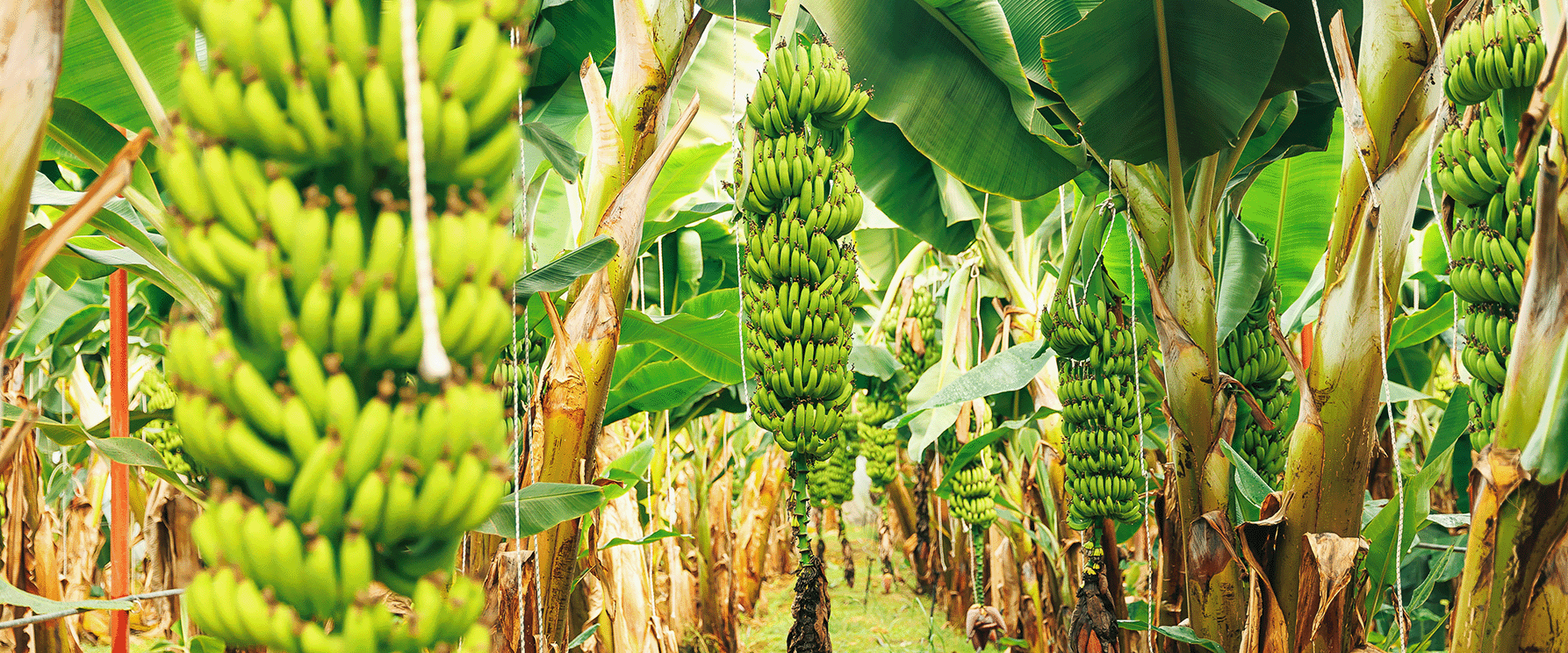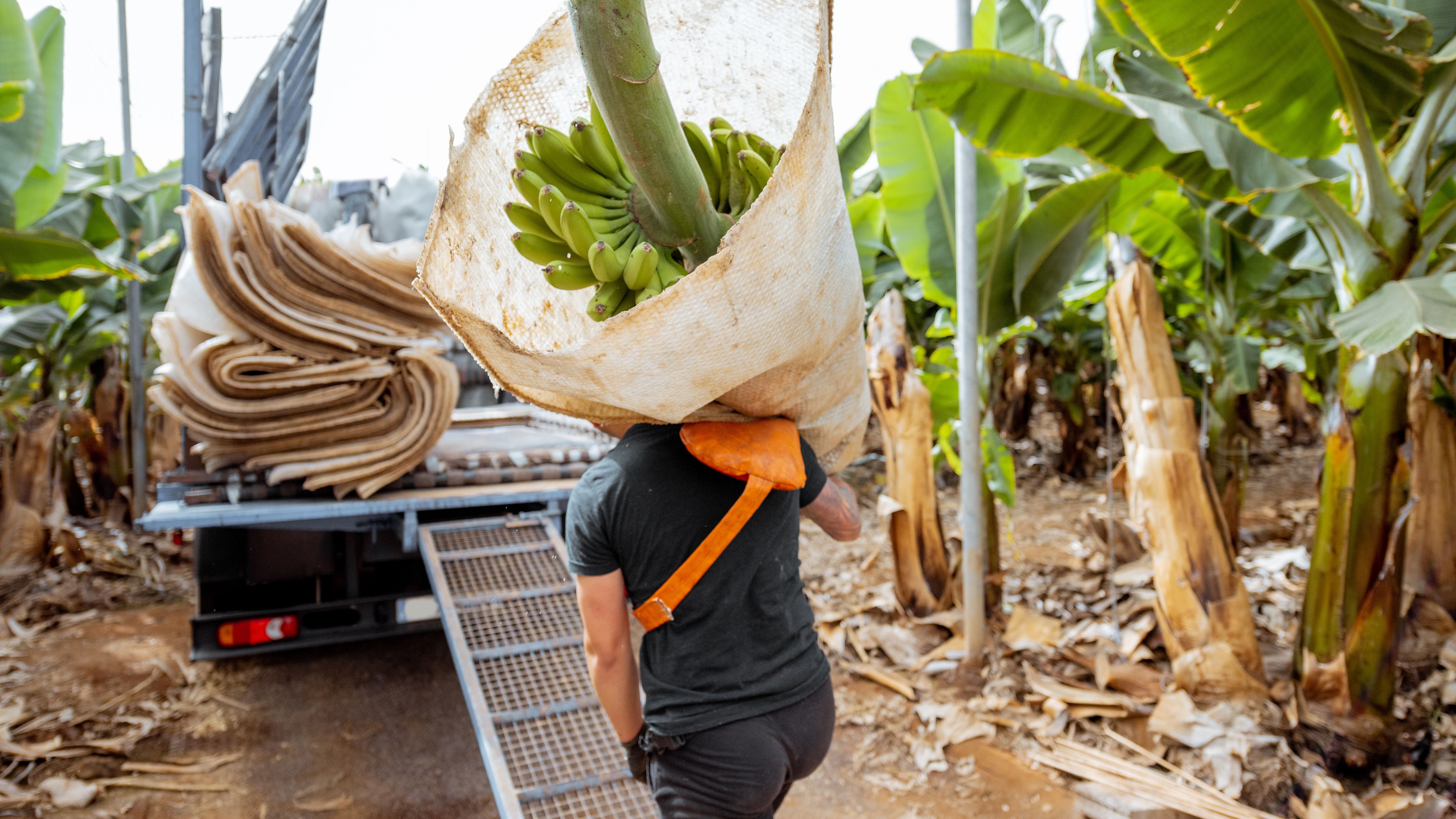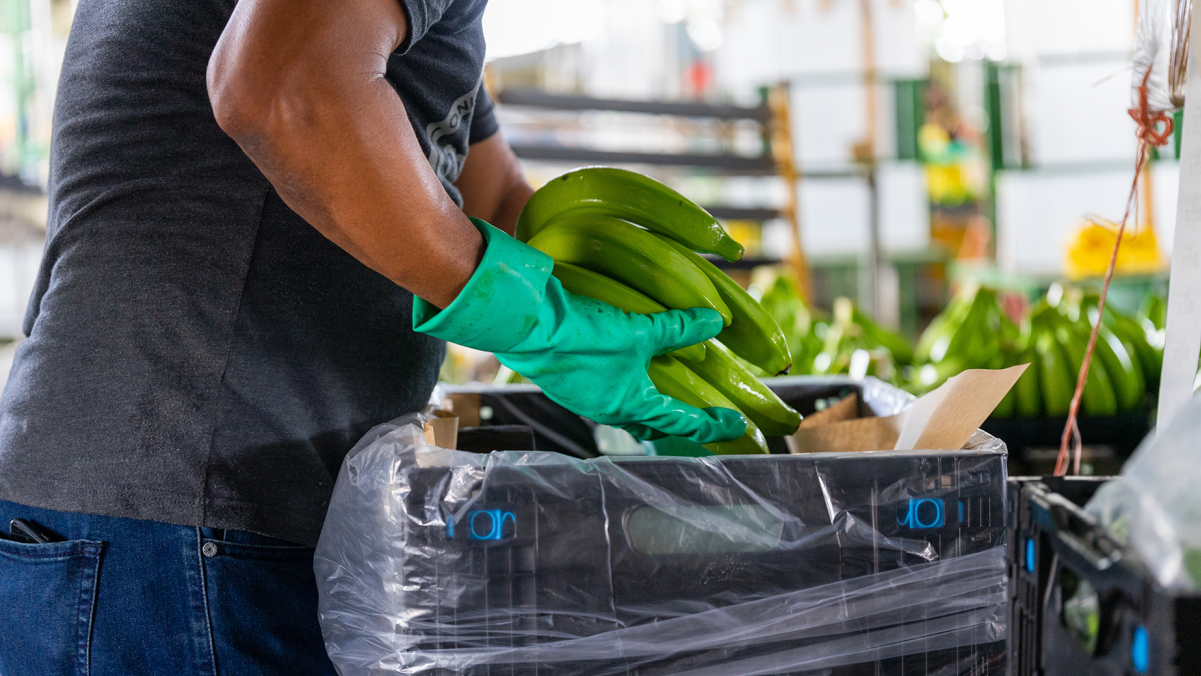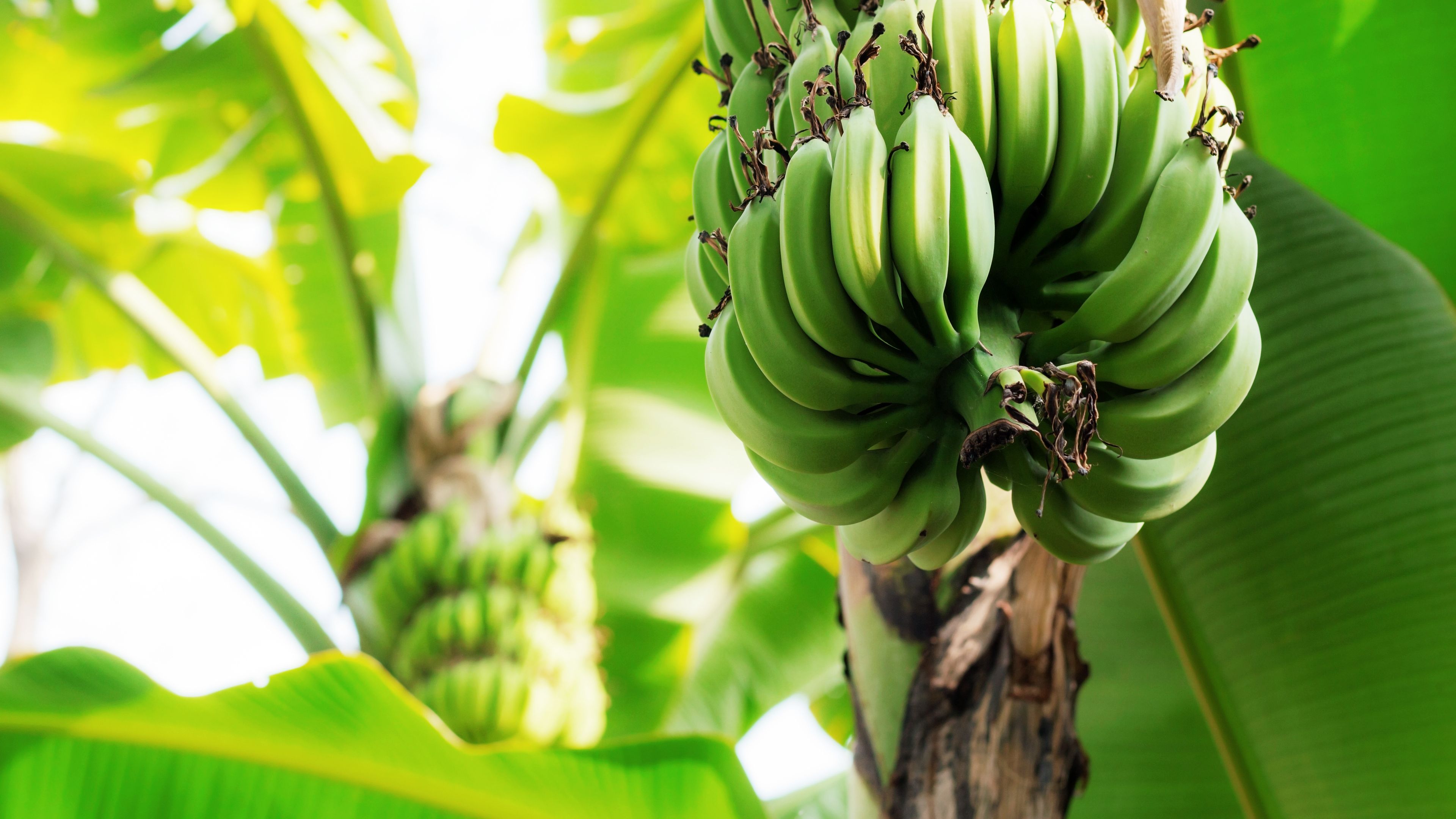

Since 2022, the ALDI SOUTH Group has completely changed the way bananas are purchased and how partnership is lived throughout the supply chain, in an effort deemed an industry best practice.
Due to the close collaboration with selected key business partners, we are able to increase transparency of production costs using a joint open-book costing approach and strengthen the sense of shared responsibility in ALDI supply chains. By implementing more responsible purchasing practices, we are better able to reflect and jointly tackle critical cost changes and cost fluctuations that impact all supply chain stakeholders.
For our direct business partners as well as producers, the longer-term partnership we offered has provided them with increased sourcing and planning stability. This effort enables more investments in activities that benefit workers and the environment. In addition, the reliance on publicly available benchmarks as part of the open book costing model, such as the Fairtrade minimum price adjustments, was most appreciated by our partners, as the consideration of these cost factors benefits their bottom line. At the same time, the implementation of the new sourcing models allows us to move beyond frequent conversations about prices and contracting. Instead, the conversations with our business partners can now focus much more on strategic and forward-looking topics, i.e., how to tackle pressing sustainability issues in the sector.
What’s next?
Following the model’s successful implementation, preparations are taking place to ensure we can soon buy all internationally purchased bananas using this best practice model. Meanwhile, we are laying the groundwork to roll out this model in our other fresh produce items such as pineapples.
At ALDI, we are committed to working towards the creation of a sustainable banana supply chain. We recognise that this is a long-term effort, for which we aim to work closely with our partners.
Therefore, this joint effort constitutes a step towards the implementation of more responsible purchasing practices and an increase in the transparency of production costs that benefit all.


